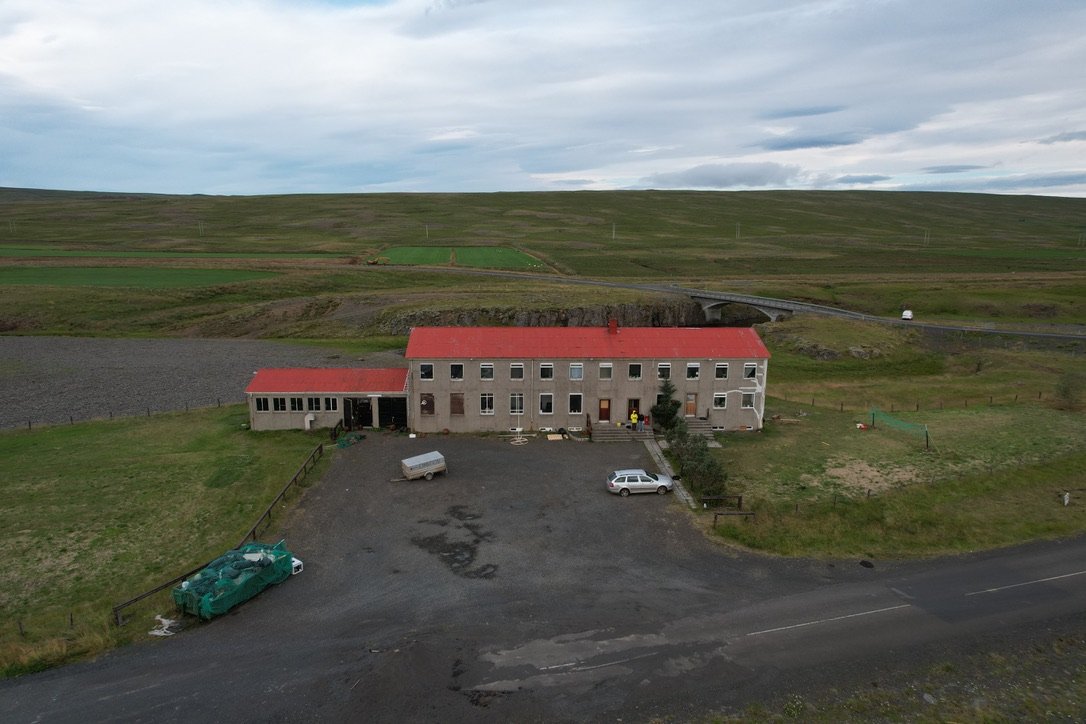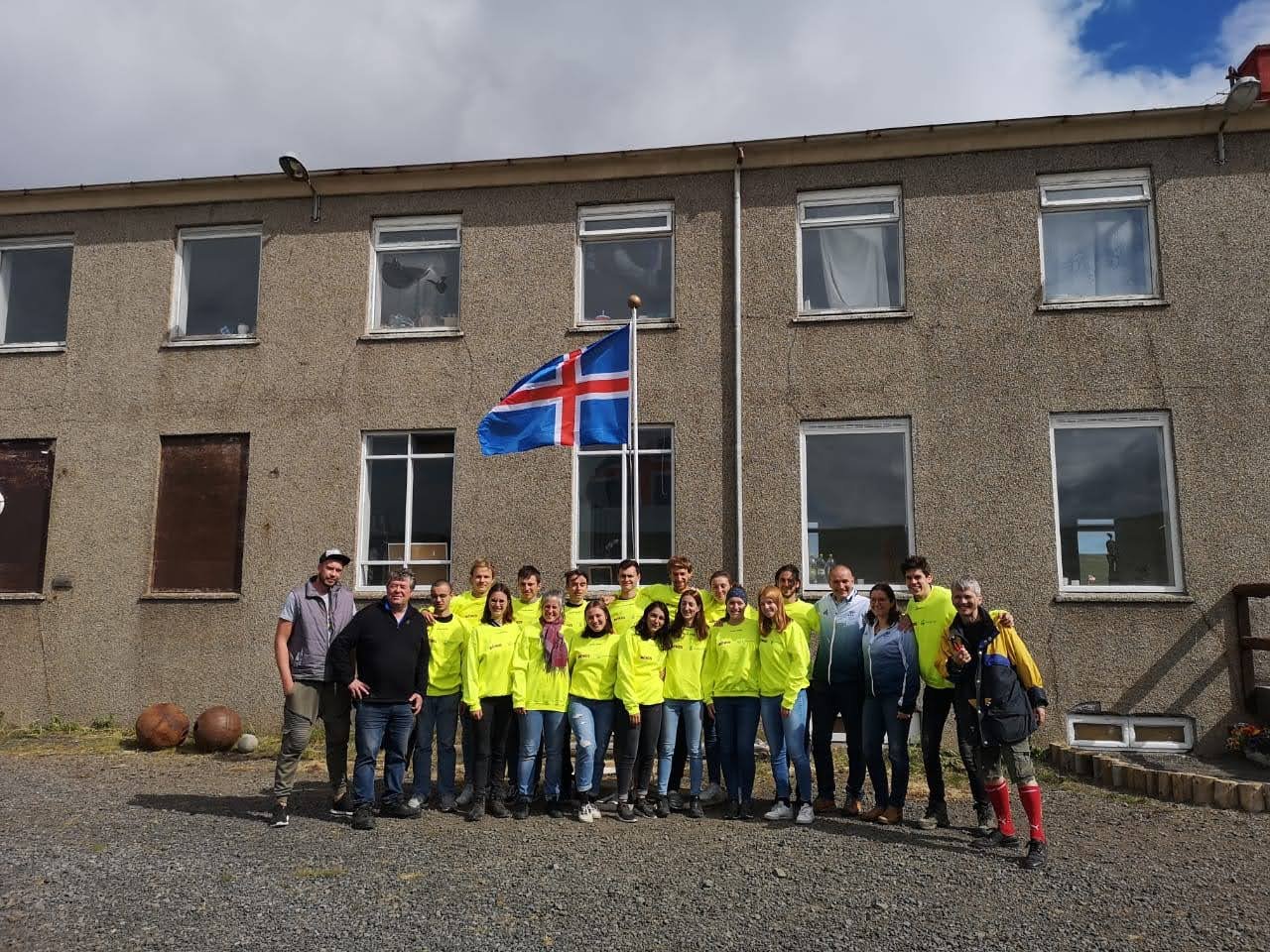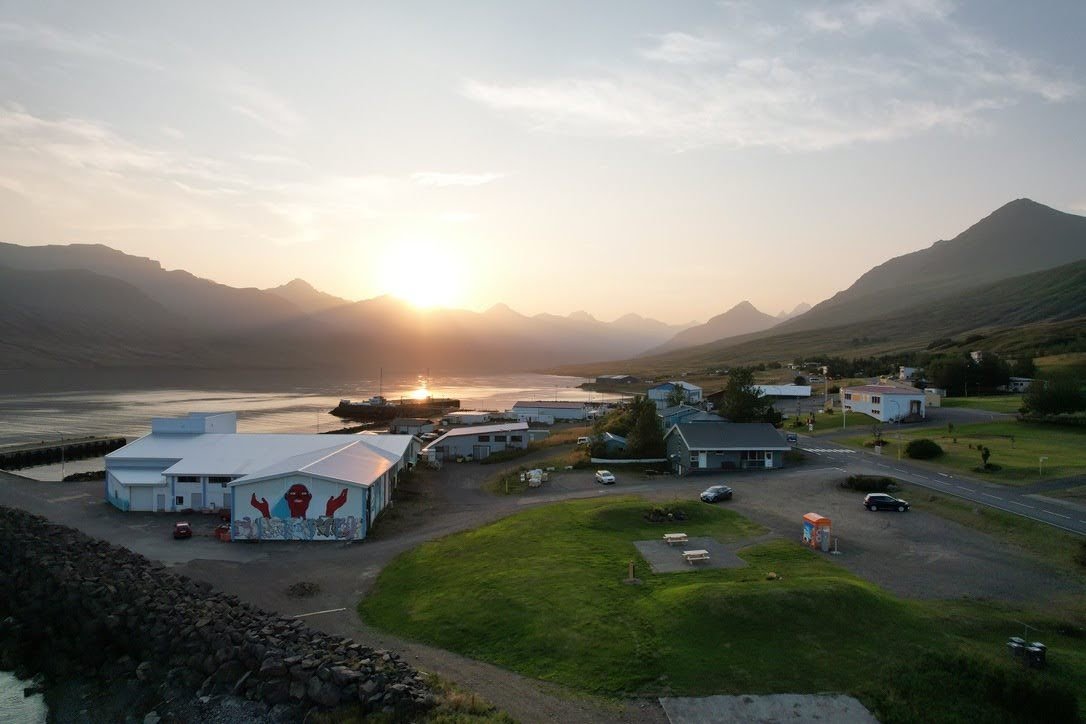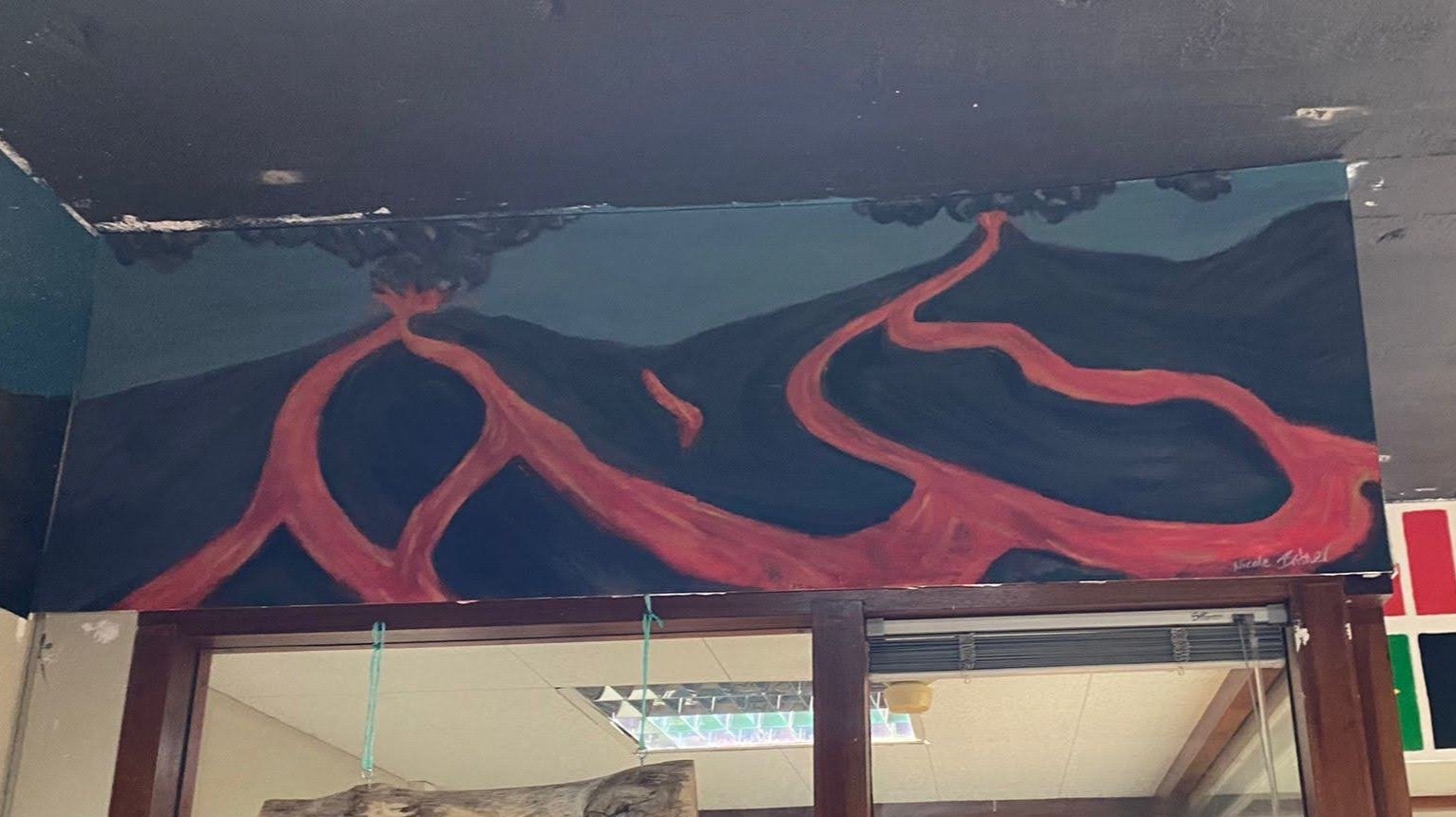How I volunteered in Iceland for 4 months
A Guide and Documentation on:
The European Solidarity Corps
Worldwide Friends Iceland
My role as a Camp Leader
Introduction: A way out
In the summer of 2021 I volunteered in Iceland. At the time I was at a crossroad in my life and in desperate need of a change of pace, activity and scenery. When I saw the opportunity to go abroad for an extensive period, I took it. I applied in April and got the confirmation on my 25th birthday, April 15th. In hindsight that has been the best birthday present I’ve ever had!
Saying goodbye to my family, quitting my job and not knowing what I was getting myself into was for sure scary. At the same time, I also felt like was setting myself up for an amazing journey of a lifetime. I felt so blessed I’d found a way to escape Belgium. I kept saying I had no expectations, yet my expectations were sky high. I wanted to find inner peace, connect back to nature, make worldwide friends and through that I hoped to reimagine myself. Spoiler: this trip exceeded my expectations!
In this blog I’ll explain how I lived abroad for basically no money. I’ll talk about my role as a volunteer, what I did from day to day and in which organisation I worked. I hope you find inspiration and definitely some know-how for your next adventure!
European Solidarity Corps (ESC)
What is the ESC?
My whole volunteering experience was subsidised by The European Solidarity Corps. This fund covered my flight, stay, food and even provided me with some pocket money every month. The ESC is a European fund that aims to promote solidarity by enhancing the local or international engagement of young people to strengthen cohesion, solidarity, democracy and citizenship in Europe. It offers young adults (18-30 years) the chance to support non-governmental organisations (NGO), local authorities or private companies active in addressing challenging situations across the European Union.
This image shows the approved European countries where you can do a funded volunteering project.
The duration of the project can vary from two weeks until twelve months! You read that right! The ESC allows you to live abroad for up to a year! Who said travelling the world is supposed to cost a fortune?
As a European citizen you’re allowed to participate with the ESC only once in your lifetime. Better take the opportunity!
How to apply for an ESC project?
For an ESC project to be successful there need to be three pilars in place; 1) the volunteer, 2) the host organisation and 3) the sending organisation. These three factors need to align and communicate with each other.
There are basically two ways to apply and find a good project. The first, volunteer-based, way gives you full autonomy, but also all the responsibilities that come with it. The second, organisation-based, way is the more laidback option, because externals take up some of the responsibilities. I’ll start by explaining the volunteer-based way, since it encompasses every step along the road. The other option skips some of these steps, making it a lot more accessible.
-
Find a host organisation
The first thing you have to do is apply on the ESC website as a young person. This website forms a portal between young people and host organisations to find each other. Through this portal you can find a plethora of projects. These can vary in a wide range of fields – education and training, citizenship and democratic participation, environment and natural protection, migration, culture, and many others. (See picture below for all the possible working fields.)
The amount of organisations is incredibly vast. Every day there are loads of new opportunities and locations uploaded to the database. I’d recommend you filter it based on your interests, or you’ll be overwhelmed by all the options. Some things to pay attention to are: 1) location, 2) type of project and 3) time and duration.
When you find the project or destination of your dreams, make sure you apply for that position asap. The process of your application can take quite a while (3 months - 1 year). Also don’t put all your eggs in the same basket. Apply for multiple positions. It’s better to have options, than to have one disappointment. The host organisation(s) will eventually get back to you. If they give you a green light, you can advance to the next phase.
Find a sending organisation
The sending organisation is the middle man between you and your host organisation. It helps you with all the paperwork, preparations and legal affairs. The sending organisation is your support system during your entire project. They’re always there for you. Having them around gives you the peace of mind during your great adventure.
My organisation was Mu-Zee-Um and they were absolutely excellent. They’re based in Ostend, Belgium. Be aware that your sending organisation needs to be from your country of residence. A good way to find a suitable organisation in your own country is through your National Agency (NA). In Belgium that’s JINT vzw.
You never know what will happen during your great adventure, so having an insurance is crucial. Luckily the sending organisation also helps you take care of your insurance. The insurance is paid by Europe and happens through Cigna Insurance.
Finally the sending and host organisation will work together to give you a pre-departure training. They prepare you for all the practicalities of your project; what you need to bring, what to expect and what your possibilities are if you end up not liking the project.
-
The organisation-based application goes through the same steps as the other option. Except here it’s the sending organisation that filters and skips some of the steps on your behalf.
My sending organisation has a Facebook page called “mu-zee-um opportunities abroad!”. There they post open vacancies in host organisations they’ve worked with in the past. This is a tremendous help in finding a qualitative project.
The opportunities require you to apply with your CV and a motivation letter. Tip: make sure that your personality shines through in that letter. Let them know what the project means to you and why you’re a good fit for it.
When your application is approved, they’ll propose your application to the host organisation. You’ll get invited for an interview. This will be your first impression, so make sure it’s a good one. Be prepared, meaning that you’ve checked their website and fine-tuned your motivation.
You’ve made a great impression and you’re in. Congrats!
From here on you can start preparing for your departure. In the meanwhile your sending and host organisation will take care of your insurance and other legal affairs.
The Sustainable Development Goals
All participating organisations have to work towards one or multiple of the EU’s Sustainable Development Goals. The aim is to achieve these goals by 2030. It’s main benefit is allowing organisations to work towards a common goal. In the end everyone is working in order to make the earth a safe and sustainable place again.
Youth Pass
The youth pass is a certificate you get after completing your volunteering project. It’s an overview of the tasks you've done. It also shows and proves the competences you’ve gained or practiced during the project. This is an excellent addition to your CV. You might think it isn’t worth much, but when an employer sees that you have experience abroad, it’ll give you an edge on others.
If you’re wondering how one looks like, you can check out my Youth Pass.
Worldwide Friends
Truth be told, when I applied for my project I didn’t have the slightest clue which organisation I was getting myself in. I made my decision based on the location. Everything else was extra. I didn’t know much about my organisation, except that it’s main occupation was to clean beaches all around Iceland.
I ended up volunteering for Worldwide Friends, whose main focus is on climate action, life below water and life on land (SDG 13, 14, and 15). In my experience good health and well-being (SDG 3) was a very important aspect as well. It ended up being one of my biggest concern during the project. Worldwide Friends organises work camps in multiple places around Iceland. These work camps are led by long term volunteers (that’s me) and are destined for short term volunteers (coming through different exchange programs).
Worldwide Friends has multiple locations around the Island. Check out the pictures below for more information on them.








I mostly stayed in Stöðvarfjörður, which is all the way in the east of Iceland. Talk about living in the middle of nowhere. The house is located at the shore of a fjord. The view from the house was breathtaking when I first saw it, and it still was when I said goodbye.
Worldwide Friends’ main objective is to bring people from all around the world together. They do this by working towards a common goal. All the volunteers rely on each other and that makes it really easy to become friends. I’ve seen participating in this organisation as a social experiment; "What happens when you put +20 international strangers in a house in the middle of nowhere in Iceland?” The results might surprise you, but they're mostly positive experiences. They become friends!
Despite the organisation putting a lot of things in place, there’s still a huge autonomy for the volunteers. They encourage active participation. This isn’t a tour guide company. I mean sure, you’ll see a lot of wonderful things while working, but that’s honestly of secondary importance. Worldwide Friends is on a mission to clean the Icelandic beaches. If you expect to be driven around every day, exploring the outer edges of the island, you’re in for a huge disappointment. On the other hand I also had to temper expectations from volunteers expecting that their support is going to fix the entire climate crisis. WF works on a small scale, because that’s what their resources allow them to do.
At the end of the day you can be frustrated that you’re not doing enough or you can be content that you’re doing something and in the process trying not to make it any worse.
Education is the biggest impact that such a work camp can have on you. And although you might not reverse global warming, your actions and passion might inspire people worldwide to make a change. A change that actually makes a difference!
The program puts a strong emphasis on sustainability. In WF houses you’ll eat only vegetarian meals, unless you are really keen on eating meat. The organic waste gets composted and as much as possible gets upcycled. So much trash from our beach clean ups gets transformed into art pieces.
And art is particularly important in this organisation. The houses thrive on it. There are art pieces all around the houses. A couple of years ago there was even a trash treasure art exhibition in Reykjavik. Creativeness is key. The volunteers are actively encouraged to think, make and execute any good ideas they might have. Below you can see an initiative I’ve set up. All artworks were done by the volunteers. We pimped the house and made it a home.
Camp leader
My role in the organisation was that of a camp leader. This was the first time that I was in charge of a group of young people. I did have the advantage of having been a high school teacher before Iceland, so I kinda knew how to handle groups and take initiative. As a camp leader I was in charge of organising and coordinating the work camps. Meaning that the success of a work camp would rest almost entirely on the shoulders of the camp leader(s). We were the crucial link between the volunteers in our work camp and the management all the way in Reykjavik.
In the first place it was important to make a plan for the work week. Iceland is a very unpredictable country and the whole situation/plan can change at any moment. Making a plan on a day to day basis was a lot more realistic, so we always worked on a short term perspective. New volunteers (often Germans) would be flustered by the lack of long term planning. They’d expect a fully planned week, from working in the morning and afternoon to doing something fun in the evening, and heck even going on an excursion on the weekends. I was supposed to be free on the weekends, but even those moments were spent planning and participating in various activities with volunteers. And although this was fun, it was still very socially and time demanding. I guess there just isn’t a way to have a day off when you live in a house with +20 young folks. But that’s what you sign up for as a camp leader!
Beside the mandatory work load there were also free-to-follow workshops. These would take place in the evening or afternoon. My goal was to nudge everyone in sharing some knowledge or skill of theirs with the group. I believe WF is all about learning from each other. For Instance, I gave multiple workshops on creative writing and on breath work. Both were major successes! I believe that’s because they came from an authentic place. Without any pretence or deep preparations I’d talk about the topics that interested me. During my stay I participated in other workshop on Krav Maga, Icelandic geology, bread baking, preparing pelmeni, and so much more. I loved how every once in a while the group would become a learning space! I guess I’m still a teacher at heart after all.
Another big task of mine was delegating the in- and outgoing stream of volunteers. Every two weeks there’d be a batch of them leaving and a couple of days later others would join the group. Now you’d think that’s an easy feat to do, but mind yourself that we were in the east of Iceland. There’s not much up there, and the drive to Reykjavik, all the way in the south would take a good 10-13 hours. In order to transport them, a driver would have to come from RKV, pick them up, and drive them all the way back. It was crucial that I kept a clear overview of the leaving volunteers.
My final task was to make sure we did something on the weekends. I had to plan the destination and activities, organise transportation, communicate with management, collect the fees and very often drive there myself. Luckily I never had to pay for these excursions as a camp leader. Nevertheless, it was quite a hassle. The best part was that we’d be out of the house on a little adventure. The beautiful sceneries, amazing hot springs and numerous waterfalls had the magical power to recharge everyone from a hard week of working.
I loved being a camp leader! I loved the responsibility, I loved how I could bring people together. I loved it so much I extended my stay for another month. But after a while the novelty would brush off and those long days and short nights would stack up. Three months in, I’d start being overwhelmed by fatigue and I’d rather go to bed than be up with everyone. Being a camp leader became a routine and I lost my fire. I realised how intense I had been living; meeting new people incessantly, creating new skills, living together 24/7, micromanaging little conflicts and being the pilar of the house. I was so grateful for everything I got to experience, but I decided to call it quits. I wanted to end before I turned sour. I knew my peak was behind me, so I needed to move on.
On this ending note I can say that I’ve learned so much during my volunteering project. I’ve learnt more about managing people than any school could’ve taught me. I learnt by doing and not by studying, which is exactly what I needed after finishing my academic master. I’ve gained so many soft skills its hard to put them all on my CV. I’m glad I have my Youth Pass, which proves all the competences I’ve acquired.
Stepping outside of your comfort zone is the best way to grow. Never forget that seeking discomfort confronts your limits, and that’s exactly where you want to be. Growth, love and happiness are unlimited on that edge. You just have to take that first step in the right direction!
Conclusion: a life-changing experience
I hope that this quick (and rather long) guide encourages you to volunteer abroad as well. An experience like this might not make you any money, it might even set you back a few bucks, but you’ll gain a ton of experience, and that’s priceless! In a world where many people work to travel every once in a while, the ESC gives you the opportunity to invert that. You get to travel to work, you learn by doing and you live a very intense and versatile life.
Volunteering isn’t for everyone. You need to be open-minded, patient and willing to do jobs no one wants to do. It teaches you a lot about humility and the value of helping those in need. Volunteering taught me so many things, but I’ll save that for another blog post.
For now, I just want you to know that there are possibilities to live your life to the fullest. I think the ESC is a major privilege for us Europeans. It allows everyone (Europeans between 18-30 years) to experience something extraordinary, yes even life-changing! It doesn’t cost a ton of money, you don’t need to know any fancy people or have a high degree. All it truly takes is your time and your love.
The world is your stage, take it!
Blog out!
Durim Morina, Ostend












